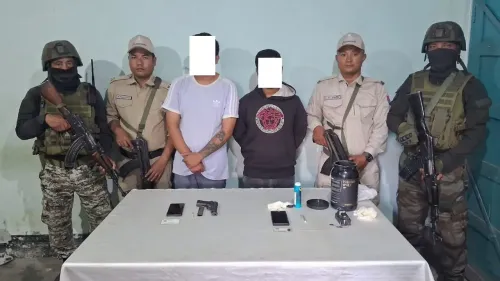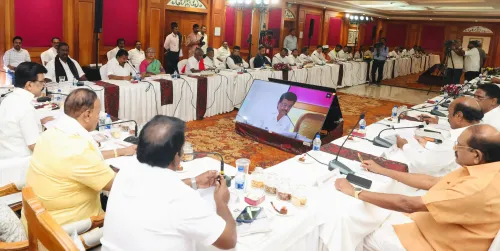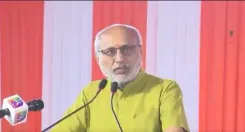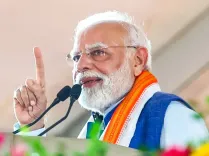What Was Indira Gandhi's Firm Stand Against US Intervention During the 1971 India-Pakistan War?

Synopsis
Key Takeaways
- Indira Gandhi took a strong stand against US intervention during the 1971 India-Pakistan War.
- Her leadership was instrumental in the creation of Bangladesh.
- The US attempted to pressure India through military means.
- Indira Gandhi's resilience continues to inspire leaders today.
- Her legacy emphasizes the importance of national sovereignty.
Mumbai, May 12 (NationPress) The NCP-SP legislators, led by Sharad Pawar, Jitendra Awhad and Rohit Pawar, took to the social media platform X to commend the former Prime Minister Indira Gandhi's decisive stance during the 1971 India-Pakistan War, urging the United States to refrain from meddling in the bilateral relations of India and Pakistan.
They expressed their disapproval of US President Donald Trump’s unilateral declaration for a ceasefire, while celebrating Indira Gandhi for her resilience against American pressure.
Awhad, the leader of the NCP-SP Legislature Party, shared a video of Indira Gandhi’s press conference in the US, where she firmly requested the latter to stay out of India’s internal matters and the East Pakistan Refugee Crisis (1971).
“Indira Gandhi told the US, ‘We will determine the direction of our nation, do not interfere unnecessarily.’ She was also the one who achieved the division of Pakistan,” he stated in his post.
Conversely, NCP-SP legislator Rohit Pawar elaborated on Indira Gandhi’s pivotal role during the 1971 conflict while opposing any US intervention.
“This incident during the 1971 war under Prime Minister Indira Gandhi led to the bifurcation of Pakistan and the establishment of a new nation, Bangladesh,” he noted.
“In 1971, the independence movement in East Pakistan (now Bangladesh) was intensifying. The Awami League, led by Sheikh Mujibur Rahman, gained a majority in the elections, but the authorities in West Pakistan refused to transfer power. This refusal escalated violence and led to nearly one crore refugees entering India. During this tumultuous period, US President Richard Nixon dispatched the Seventh Fleet to the Bay of Bengal to support Pakistan, attempting to pressure India against involvement. However, Indira Gandhi stood firm, clearly stating to US National Security Advisor Henry Kissinger that if the US did not intervene to stop Pakistan's aggression, India would be compelled to act. She empowered Army Chief Sam Manekshaw to prepare for conflict. Following Pakistan's airstrikes on India on December 3, 1971, India declared war. In a span of merely 13 days, the Indian Army secured a significant victory in East Pakistan, culminating in the surrender of around 93,000 Pakistani soldiers on December 16, 1971,” he explained.
Indira Gandhi only declared a ceasefire once Pakistan was divided and Bangladesh achieved independence. She was indeed the Iron Lady!”
Rohit Pawar also highlighted, “Even Atal Bihari Vajpayee, the then Leader of the Opposition, respectfully referred to her as ‘Durga.’ The courage, self-respect, patriotism, and leadership of this formidable leader, Indira Gandhi, continue to be honored today. Great leaders from both the ruling and opposition parties recognized each other's strengths and upheld a spirit of compassion and patriotism, refusing to bow to any global superpower!”









